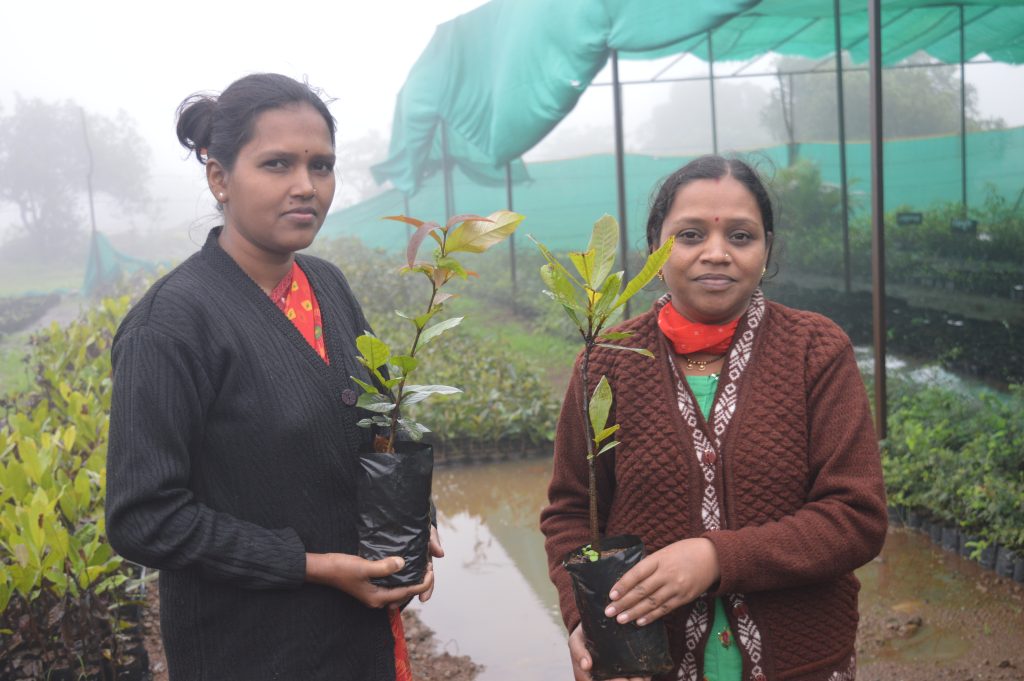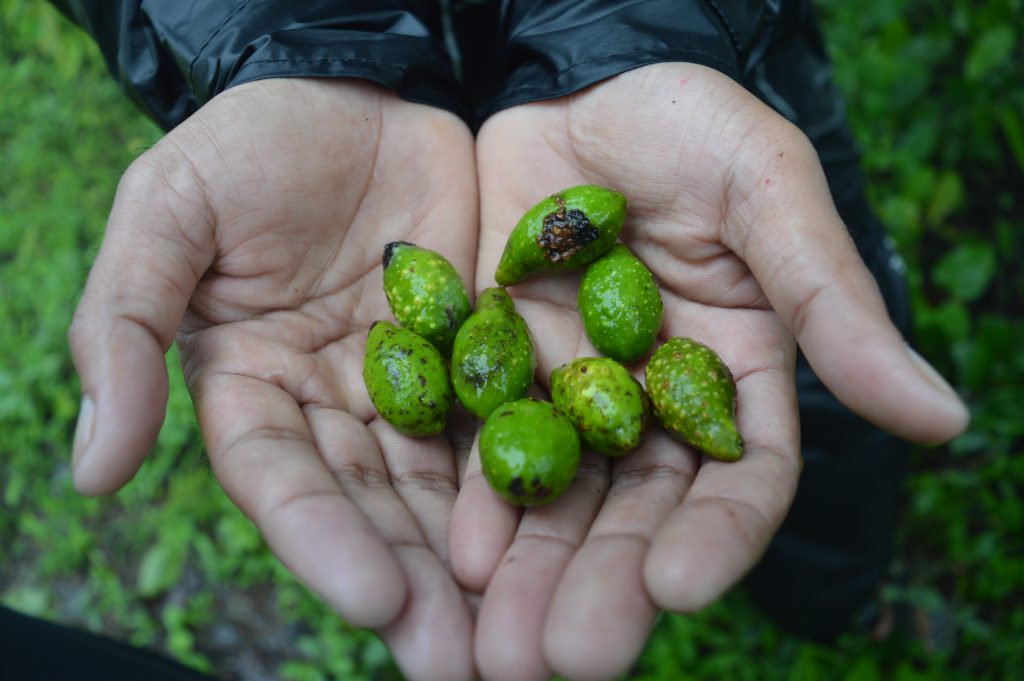The Western Ghats in India are a 1,600 km long, forested mountain chain running from north to south. Its exceptionally high level of biodiversity makes it a global biodiversity hotspot. Such hotspots are regions where there many endemic animal and plant species and nature is under extreme risk. The destruction of forests does not only mean that large quantities of carbon dioxide are released into the atmosphere but it is also increasingly having a negative impact on the living conditions of local communities. Indigenous peoples rely heavily on the use of forest resources and are thus particularly at risk and severely affected by the negative consequences of land use changes.
The Western Ghats are recognised as a UNESCO World Heritage Site. The forest is extremely valuable for water storage, including for the cities of Mumbai and Pune in Western India, moderate the climate in the region and provide a number of ecosystem services on which the livelihoods of local inhabitants depend.

In collaboration with two Indian environmental NGOs headquartered in Pune (TERRE Policy Centre and Shashwat Trust), the Global Nature Fund (GNF) based in Germany, with financial support from the Federal Ministry for Economic Cooperation and Development (BMZ) and a private donor, the Wilo-Foundation, has been working since 1 July 2022 to establish four tree nurseries in seven villages in the states of Maharashtra and Karnataka. The planting of at least 55,000 tree seedlings enables the rehabilitation and long-term protection of 70 hectares of degraded forest. Nurseries are set up and trees are planted in close consultation with the local population. The project also benefits local communities as many of the trees are tree crops, and also includes measures for income-generation from harvesting and processing forest products. There are also accompanying measures aimed at strengthening the identity of forest communities by setting up a “Tribal Museum”. The museum not only preserves and spreads traditional knowledge on the importance of the forest and its sustainable use but also strengthens tribal communities’ awareness of their existing forest use rights in the modern state of India. On World Environment Day (5 June) ten employees of Wilo in Pune participated in a tree plantation drive implemented as part of the reforestation project.

Following on from projects in Colombia (drinking water treatment), Cambodia (drinking water for a floating village) and Jordan (waste water and solar project), this is now the fourth international water project of the Global Nature Fund that is being supported by the Wilo-Foundation. The foundation also sponsors the activities of the Living Lakes Networks that is working to protect lakes. Here, the Global Nature Fund coordinates the collaboration between environmental and nature conservation organisations at the partner lakes.
